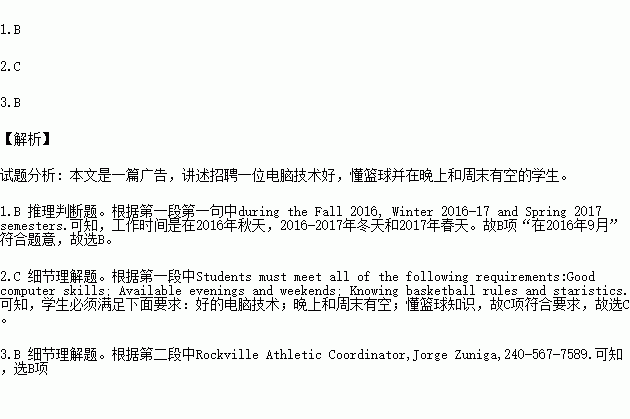题目内容
Basketball Statistician Help Wanted
The Athletic Department is looking for students to help assist staff during the Fall 2016, Winter 2016-17 and Spring 2017 semesters. Students in this position will be keeping live statistics during basketball games. Students must meet all of the following requirements:
? Good computer skills
? Available evenings and weekends
? Knowing basketball rules and statistics
Students interested in working for the Athletic Department should contact the Athletic Coordinator at their respective(各自的) campuses.
? TP/SS Athletic Coordinator, Michael Simone,240-567-1308
? Rockville Athletic Coordinator, Jorge Zuniga,240-567-7589
? Springfield Athletic coordinator, Gary Miller,240-567-2273
? Germantown Athletic Coordinator, Gavri Chavan, 240-567-6915
1.When will the job start?
A. In May 2016.B. In September 2016.
C. In May 2017.D. In September 2017.
2.Who is more likely to get job?
A. Sam, English major, member of the college basketball team.
B. Judy, IT staff with night classes, children’s basketball team coach.
C. Ted, computer major, basketball fan, free on evenings and weekends.
D. Molly, part-time programmer, high school basketball player, new mother.
3.Whom should you contact if you want to apply for the job in Rockville?
A. Michael.B. Jorge.C. Gavri.D. Gary.
 天天练口算系列答案
天天练口算系列答案
